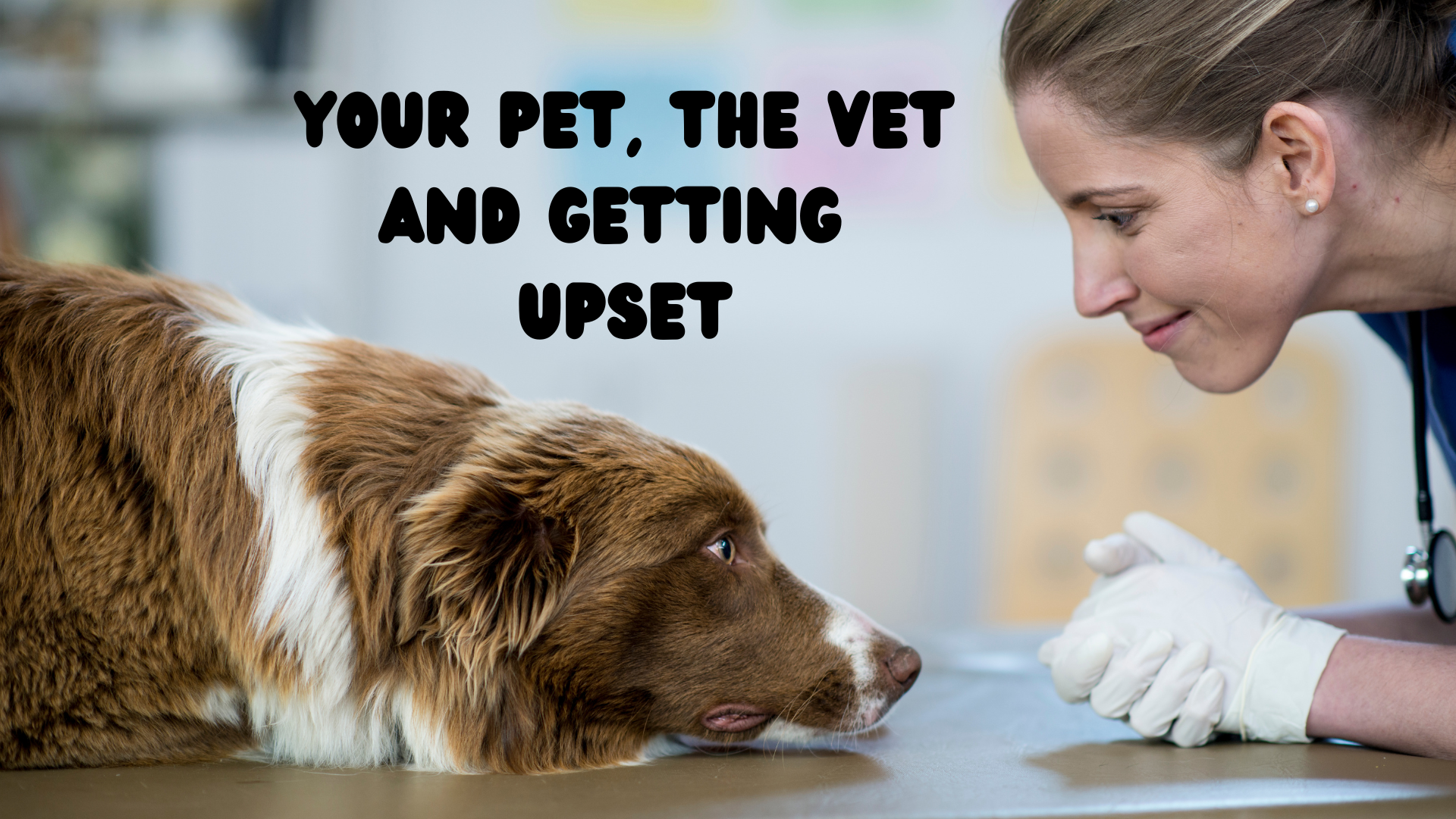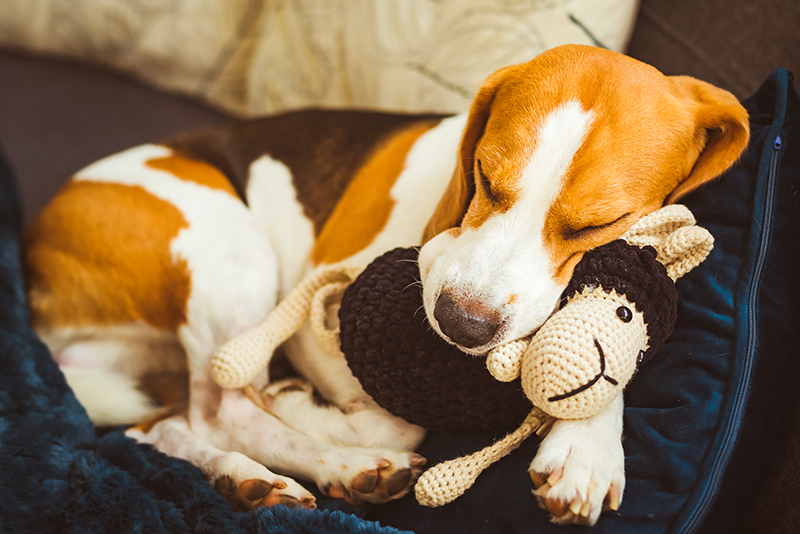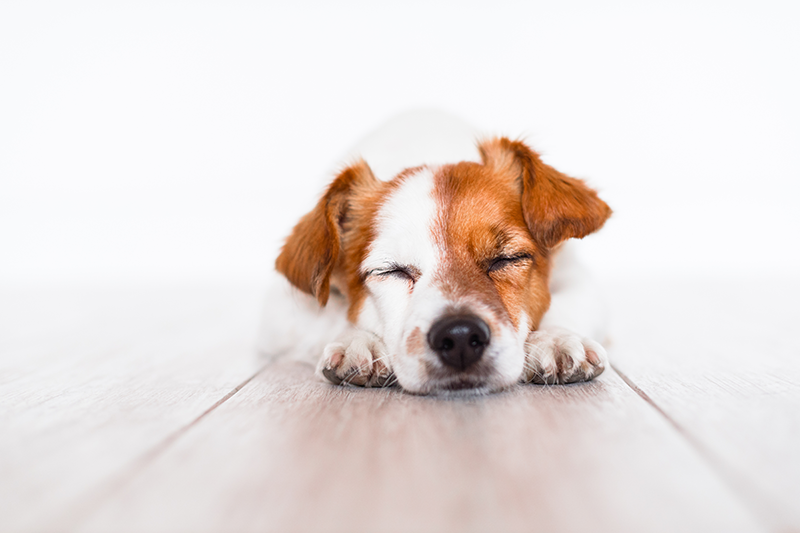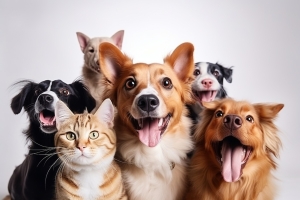How to keep your dog calm at the vets

“The vets”. Two little words that can make even the bravest pup run for cover. Needless it say, it can be a hugely stressful time for both pet and owner, but visiting the vet and managing a pet’s physical health is a crucial part of pet ownership. Nearly half of UK dog owners report their dogs as being fearful of the vet and behaving problematically as a result. Why are dogs scared of the vets? And what can we do to help?
Well firstly, vet fear is completely natural and understandable. After all, 48% of us humans suffer from mild to severe anxiety over visiting the dentist, 10% of us have trypanophobia (an intense fear of needles), and many more of us are scared of hospitals or faint at the sight of blood. Of course, we are able to rationalise the need for confronting our fears for the sake of our health in most cases.
But why are dogs afraid of the vets if they don’t really understand the concept of healthcare? We asked Roz Pooley from The Mutty Professor as to why dogs are commonly PETrified of visiting the vets:
1. Stress / fear pheromones. Dogs release pheromones through glands in their paws, ears, mouth etc. when they are scared. The primary reason for this is to warn other dogs of potential dangers - they a social species after all! While at the vets a dog may sense other canine fear pheromones in the vets, which may elicit a fear response. In addition to the smell of stressed and scared animals, your dog may see and/or hear other dogs acting scared which may influence their ability to cope.
How do you know if your dog is scared? Dogs will start to pant, drool, shake, cry, pace, attempt to flee. Watch out for these indicators and address them as soon as possible by asking the vet to give your dog a bit of space and time to calm down. Otherwise they may escalate and exhibit aggressive behaviour if they become extremely scared or stressed.
2. Strange places and people. Dogs like routine and familiarity. The vet’s office is a strange and unfamiliar place for your dog, with strange people, strange noises and strange smells that they can’t always understand or recognise. Vets may also behave in a way that your dog has not experienced before, leaning in with unusual equipment or handling your dog in a way that is very different to the affection they usually received. This can put your dog on edge and make them feel nervous.

3. They’re feeling poorly anyway. If a dog is visiting the vets other than for a routine check-up or their annual vaccinations, it’s possible that they’re feeling unwell or in pain. As we know ourselves, we don’t feel at our best when we’re not well, and can feel groggy, fed up, tired, or just plain moody. Dogs can also feel like this, which can contribute to their reluctance to visit the vet’s. If they have visited the vets before, they may remember being poked, prodded, injected etc., which may add to their displeasure!
4. They pick up on our behaviours. If we start to behave anxiously, hesitantly or just different from normal, our dog can detect it. Before the vets, as dog owners we may start to act abnormally in apprehension of how our dogs may act at the vets or we may be stressed about the fact our dog is unwell, which makes the whole experience more difficult. Try and stay as calm and composed as you can for your dog.
The good news is, there are ways we can help to keep your dog calm when visiting the vet!
1. Remove other potential stress triggers. The less you and your dog have to worry about, the better. Try and plan your vet visit so that your dog has had a walk before hand to release pent up energy, and try to ensure they are fed, to remove the problem of hunger (unless your vet has requested your dog fast pre-appointment). Also try to ensure that other stress triggers are avoided. For example, if your dog is nervous of car trips, try and walk if possible. If there’s been a storm or night of fireworks that has caused upset, you might consider rescheduling your appointment.
2. Take things slowly. Take your time making your way into the consult room and ask the vet to allow your dog time to settle before starting examination.
3. Practice makes perfect! Helping your dog to get used to common veterinary practices may help to alleviate stress on V-day. You can perform regular check-ups at home, checking their ears, paws, teeth etc. so that they get used to the sensation. You can also visit your vet before your upcoming appointment and spend 5-10 minutes in the waiting room, to show your dog that it doesn’t need to be stressful, and doesn’t always end in discomfort!

4. Use treats for positive reinforcement. Giving treats is a hugely effective way to encourage desirable behaviour. Giving your dog treats on the journey to the vets, whilst they’re waiting to be seen, and throughout their appointment will help them to associate the vets with something positive - yummy treats! Certain treats with functional ingredients - such as Nutriment’s innovative new hemp treats - can actually support calmness and stress relief. These 100% natural, high-protein and high-quality hemp treats with duck meat provide the perfect stress-relieving treat for pre-vet jitters. Find out more here!
We hope our blog about how to keep your dog calm at the vets helps with your next visit!






